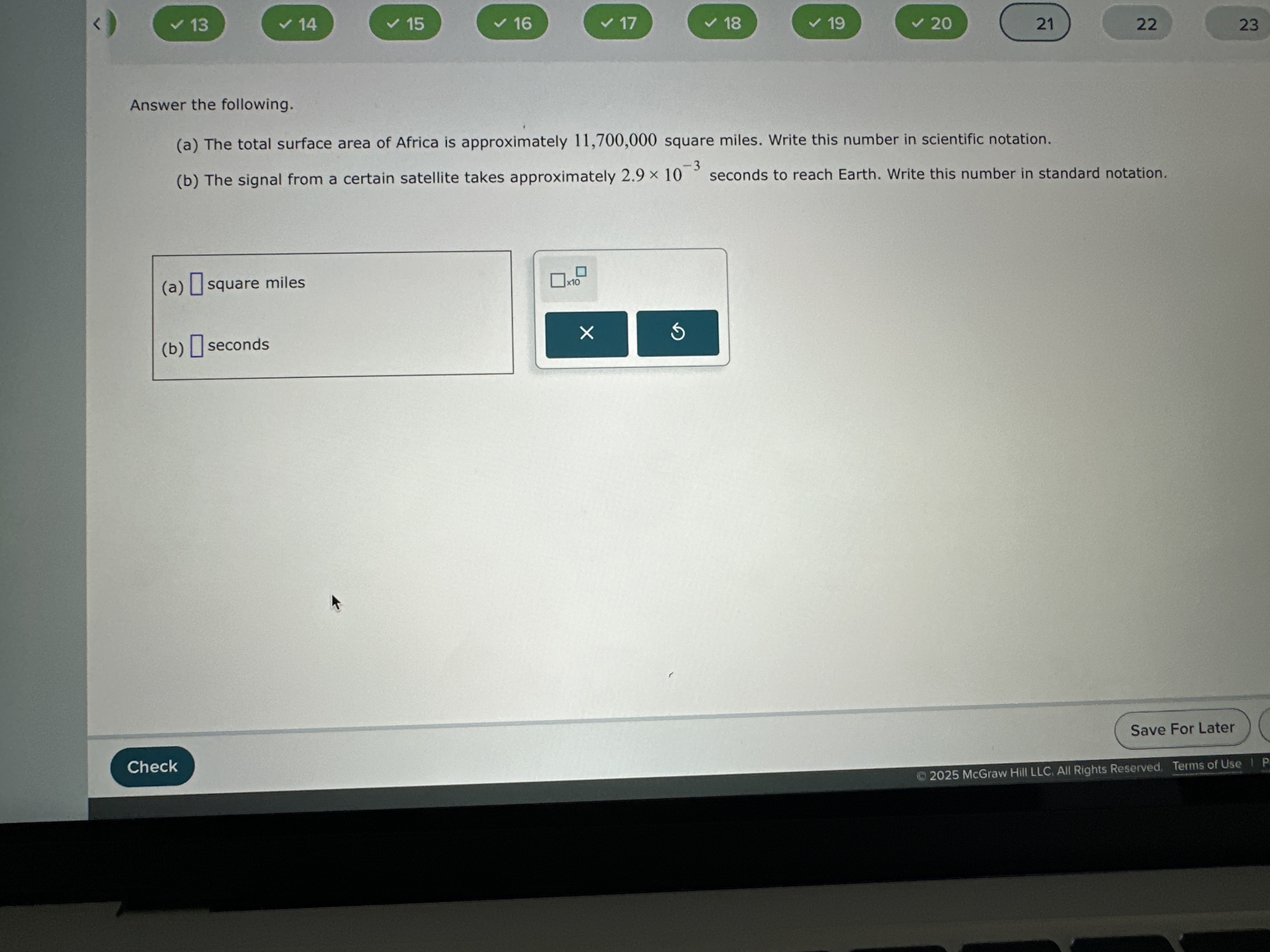(a) The total surface area of Africa is approximately 11,700,000 square miles. Write this number in scientific notation. (b) The signal from a certain satellite takes approximately... (a) The total surface area of Africa is approximately 11,700,000 square miles. Write this number in scientific notation. (b) The signal from a certain satellite takes approximately 2.9 x 10^-3 seconds to reach Earth. Write this number in standard notation.

Understand the Problem
The question asks for two calculations: (a) converting the total area of Africa from square miles to scientific notation, and (b) converting a given time from scientific notation to standard notation.
Answer
(a) $1.17 \times 10^7$ square miles; (b) $0.0029$ seconds
Answer for screen readers
(a) $1.17 \times 10^7$ square miles
(b) $0.0029$ seconds
Steps to Solve
-
Convert Area to Scientific Notation The total area of Africa is approximately 11,700,000 square miles. To convert this to scientific notation, we express it as:
$$ 11,700,000 = 1.17 \times 10^7 $$
Here, we move the decimal point 7 places to the left to get the coefficient between 1 and 10.
-
Convert Time to Standard Notation The time signal from the satellite is given as ( 2.9 \times 10^{-3} ) seconds. To convert this to standard notation, we move the decimal point 3 places to the left:
$$ 2.9 \times 10^{-3} = 0.0029 \text{ seconds} $$
Here, moving the decimal to the left indicates the number is less than 1.
(a) $1.17 \times 10^7$ square miles
(b) $0.0029$ seconds
More Information
- The scientific notation is used for large or small numbers to simplify representation.
- The area of Africa is approximately 11.7 million square miles.
- The time in standard notation represents a very short duration, useful for satellite communication.
Tips
- Misplacing the Decimal: When converting to scientific notation, ensure the coefficient is between 1 and 10.
- Incorrectly Interpreting Negative Exponents: A negative exponent means the decimal moves to the left; it can be easy to confuse it with positive exponent notation.
AI-generated content may contain errors. Please verify critical information